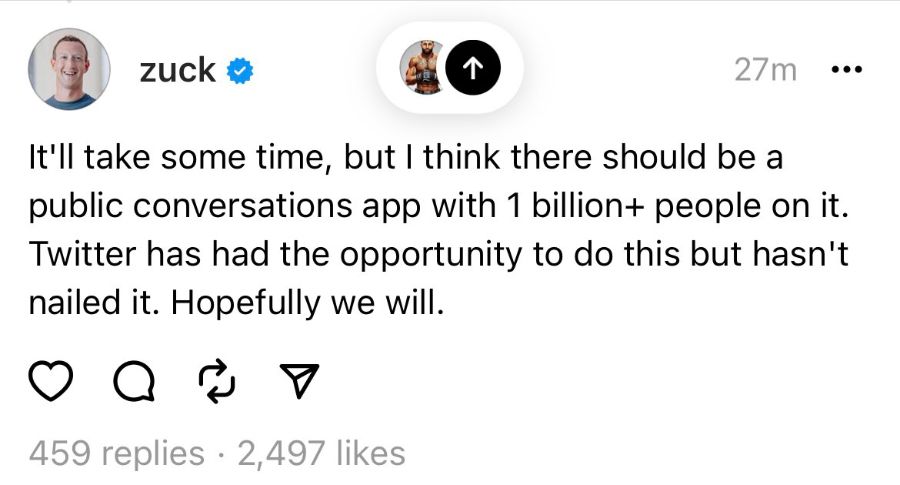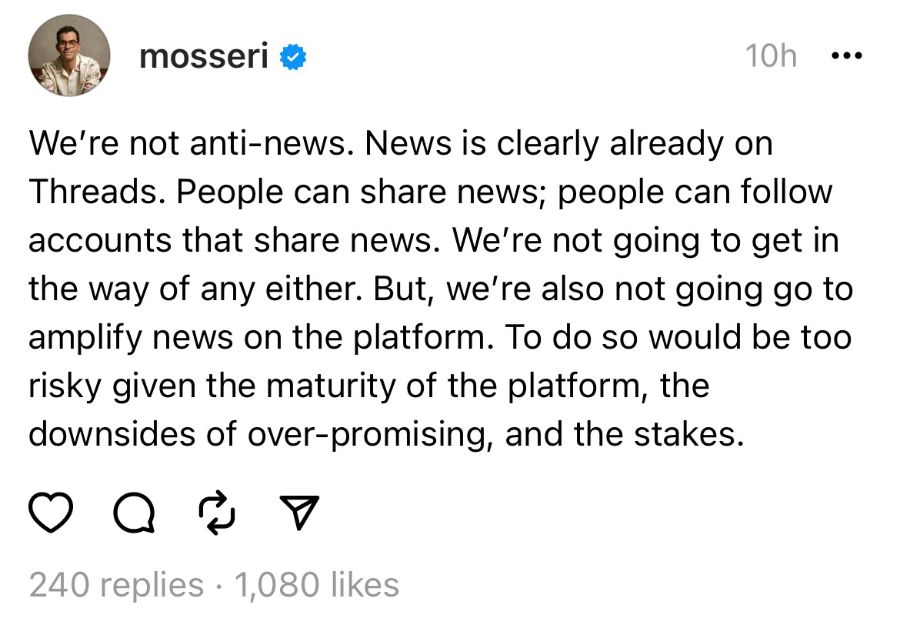It's not about news — it's about control

At its core, the word "news" might seem straightforward, with Oxford Languages describing it as "noteworthy information, especially about recent or important events." Although many of us may agree on a basic definition, the rapid spread of "news" through social networks and its impact on society has colored our understanding and application of the term.
Many of us now derive our sense of what is "recent and noteworthy" from our social feeds. With the introduction of News Feed, Facebook blended a variety of content to drive engagement:
- Personal news: Updates about your family, friends, community, and more.
- Mainstream traditional news: Content journalists at major outlets produce, encompassing a wide array of subjects from international politics to entertainment.
- Specialized news: Content with a narrower focus, appealing primarily to specific niche groups.
Initially touted as a competitor to Twitter, Threads is actually more of a sequel to Facebook's original news feed, aimed at re-activating folks who dropped off. To some extent, it serves as an opportunistic haven for those who have grown disillusioned with the new operators at Twitter.
Currently, Threads always defaults to an algorithmically generated "for you" feed. The service's lack of features like keyword filtering restricts the agency users have over which topics get their attention. And, the lack of hashtags makes it challenging for some individuals to discover communities.
The platform's commitment to these choices suggests a level of confidence in their feed algorithms to drive engagement, and presumably their intention to steer discourse.

Unlike Twitter, which lets users filter content through keywords, discover content through hashtags and personalize their default feed, Threads doesn't offer these features. Threads also doesn't offer an API to publish content which means many entities, which users might want to follow and hear from, cannot easily participate and remain unheard. It's early days for Threads, maybe some of these features are coming!
So why might there be resistance to these features by Threads? Perhaps Meta's rebranding was informed by the hard-earned lesson that groups of people, when united by shared ideologies or interests, can become influential entities that challenge the platform's centralized authority. Within these groups, shared objectives and collective identities can overpower the platform's governance. Restricting their visibility is a valid tactic to maintain order and control. While some might view this as an infringement on personal expression or user agency, platforms find themselves in a quandary: balancing user choice against business imperatives.
In this context, the word "news" is more strategic than descriptive. It's not about informing users but about guiding user attention for improved ad performance. I don't think there are many users asking for more "news" on Threads; I do suspect some folks are asking for more agency over the content appearing in their "news feed." The term news is so loaded and polarizing that it serves Meta well because it diverts attention away from their actual goals: monetizing your attention.

In essence, when users clamor for more personalization or control over their feeds, platforms have substantial monetary incentives to ignore those requests. Ultimately, this is less about "news" and more about control, influence, and growing a mainstream audience that's attractive to advertisers.